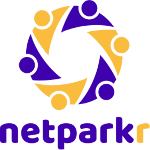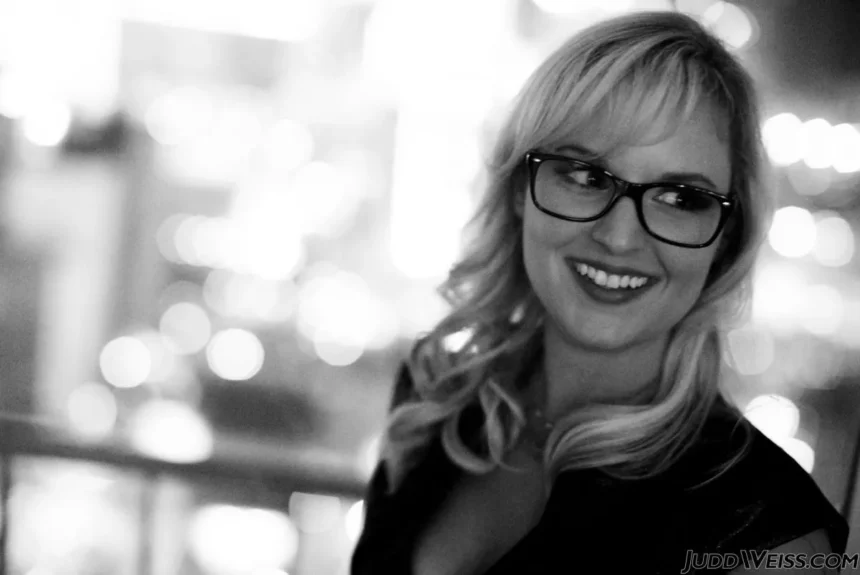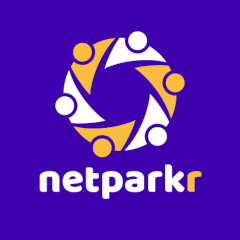Digital marketing is a viable career path for those willing to quit their office jobs and work online. Kari DePhillips, owner of The Content Factory and Workationing, shares her journey from freelancing to founding a successful digital business and her shift to becoming a digital nomad. TCF, a digital marketing firm, promotes companies like ASTROGLIDE, Fairtrade America, and corporate SaaS providers. Working from home offers significant time benefits, especially for women, as it eliminates the need for more than 500 hours a year in job preparation and travel. Remote employment is a significant component of the feminist movement, as it addresses issues like the glass ceiling and workplace sexual harassment.
For individuals willing to quit their office jobs and work online, digital marketing is a feasible career path. If you have the abilities to educate yourself, you can start working without a degree!
Interview with digital marketing guru Kari DePhillips, owner of The Content Factory and Workationing, on this subject is presented. Kari talks a variety of topics, including how to start a career in internet marketing, her journey from freelancing to founding a successful digital business, her shift to becoming a digital nomad, and much more! To find out more about Kari and to get more advice, listen to our most recent audio interview!
What can you tell us about yourself?
A digital marketing firm called The Content Factory (TCF) promotes firms including ASTROGLIDE, Fairtrade America, and corporate SaaS providers. My area of expertise is SEO, and I launched TCF in 2010 when I was 27 years old with $500 that I put into the website. Somehow, over nine years later, I’m still just 27 years old.
TCF has never had a physical office; it has always been a web firm. I did this at first to cut down on administrative expenditures, but as the agency grew, I no longer saw a need for cubicles. Working from home has a remarkable time benefit, especially for women. I avoided spending more than 500 hours a year “getting ready” for a job I was already qualified for and traveling to and from work.
One of my all-time favorite pieces of material that I’ve written is one that I wrote for TCF’s blog on this subject. In my perspective, remote employment is a significant component of the feminist movement. It stops or eliminates a wide variety of problems, such as the glass ceiling and workplace sexual harassment.
Before I had heard of the phrase, I was an American-only digital nomad who traveled while working. I had a base at home, but I would travel for a week or two to see friends or go on a “workation” in another city or state (usually near a beach).
I started touring the world as a full-time digital nomad in 2017 with Kelly Chase (33), my coworker and best friend. The Workationing podcast, which we started as soon as we made the decision to become digital nomads, covers everything from our pre-departure panic attacks and weeping fits to traveling the world while crossing things off our bucket lists.
What led you to Kelly?
Funny story: I used to work with Kelly’s ex-fiancée at a business, where I built the content division. We met here, and although though my time with the business was short (I began TCF the day after I left the firm), Kelly and I developed a friendship that would last, lasting even longer than her relationship with a man.
How did you make the switch from freelancing to running a full-fledged business? You’ve built a successful company.
I used to work as a freelance SEO writer before joining Kelly’s ex-girlfriend’s firm. While I was working at the business, a few of my freelancing customers stuck around, so when I left, I had a backlog of work to keep me busy and earn money.
I regarded TCF like a customer after I had my company created and my website up. I set up our social media accounts and used HARO to get coverage from a variety of media sources. I created some of the most comprehensive online guides for digital marketing and blogged nonstop. The articles attracted a lot of high-quality backlinks, so I kept blogging. Repeat this for a while.
Now since TCF is one of the top SEO companies in the country, our website gets about $1 million worth of organic traffic annually (which means I would need to pay that much on AdWords to equal the amount of traffic we get for free via organic search). We are the top-ranked website for every search keyword, from “web content writers” to “cost of social media marketing” to “press release distribution”; as a result, our clients find us on their own, and I don’t require a sales crew.
I obtained all of our first clients via Craigslist while I anticipated the SEO’s outcomes. This video explains my approach, which is still relevant right now. If you’re looking for remote work, check it out; the email and application tracking are definitely worth taking.
When did you start to think about touring the world with your work?
I had always thought about it. I used to work as a freelance writer and travel with my husband when he had business trips. Being a digital nomad has always piqued my attention, but I’ve never wanted to go it alone.
I delayed really making the move for around three years after planning to travel the world for work. I completed a couple one-month contracts after my divorce in different cities as well as a two-month trip to Europe with pals. The fact that I completed the job without harming my relationships with my clients or employees provided me with the proof of concept I needed to know I could do it full-time.
But I needed a partner to work with. Before Kelly, the majority of my friends could take a week or two off work and join me on a trip, but nobody could do it all the time. As soon as she showed up, I knew everything was set.
When I initially started working remotely, I stumbled into your podcast Workationing. Even though I had already done a lot of solo travel, your podcast gave me the courage I needed to try out workationing. I spent five weeks traveling around Europe with my new work (thank you!). How exactly did the podcast idea come about?
Kelly and I had already gone on a couple shorter workationing trips, proving once more that we could do this without compromising the standard or quantity of our work. We exchanged a question while we ate fish tacos on a beach in Playa del Carmen, Mexico: “Why can’t it always be like this?”
I became serious and phoned her on Skype about six months later. I asked her, “So, this is kind of strange, but I’m going to ask you anyway: Do you want to travel the world with me?” while she was in Ohio and I was in New Hampshire. It seemed like we were destroying our identities in order to create something new, and it felt SUBSTANTIAL. I mean, that’s what we thought.
We chose to record our first talks and the process of detethering our lives so that we could work from anywhere because Kelly had previously co-hosted a podcast. This involved giving up pets, ending relationships, and putting our possessions in 10′ by 10′ storage containers.
When we reached our first stop in Puerto Rico, we weren’t sure what we would do with it, but what the heck? we thought. The only road map I’ve seen was provided by Tim Ferriss, and in essence, he was advocating dropshipping, which is a challenging path to take.
Where were all the women that were in the space? Where were the reliable people who paved the way for digital nomadism? We were there, but we didn’t speak up as much. As a result, we turned up the volume and started posting the podcast.
We handled Workationing like a TCF customer, which contributed to the podcast’s growth being faster than anticipated. I figured if it was successful for TCF, it would be successful for Workationing. As soon as we were mentioned in publications like Fast Company, Glamour, Women’s Health, etc., our readership grew. We evidently attracted the attention of several people, as evidenced by the numerous encouraging comments we got after our excursion.
(Side note: I was unaware that the podcast had such an effect on you; I’m delighted to hear this; we both have the utmost respect for the She Hit Refresh organization and community you have established.)
You’ve been in Amsterdam for a while; is it now where you live permanently? Will you be traveling again soon?
We decided to headquarter ourselves in Amsterdam in 2018 for a variety of reasons, largely business-related but also because it’s such a beautiful city. We established a Dutch firm and overcame several obstacles to get visas, enabling us to stay in the Schengen area for as long as we wish as opposed to being constrained to 90 days out of 180. Having a “home base” in Amsterdam allowed us greater freedom than before because this constraint significantly limited our flexibility.
Travel is still an option since I’m presently writing this from a coffee shop in Antalya, Turkey, and will be in Taiwan next month. We still travel frequently and, in a way, are still on the road because Kelly is in the US visiting family (I don’t have a lot of relatives to see).
How many hours a week do you work? How do you manage your time between dating, work, vacation, friends, and family?
Avoid asking questions that you don’t want answered, lol! I work a lot, but I also have a lot of obligations. TCF employs twelve people, and Workationing is actively developing as a Dutch firm. It takes a significant lot of work to manage two enterprises, as well as a sizable number of staff members and customers, especially because I am working to expand both firms.
I probably work between 60 and 70 hours a week, if I had to guess. It scarcely seems like labor because so much of that time is spent “working” on Facebook or creating content for Workationing or TCF.
Traveling slowly has a big impact; I never go anywhere for less than two weeks, and I want to remain for at least a month. So I don’t feel like I have to stop working to see the sights and other things that each place has to offer.
Over the past year, I’ve had to work hard to spend time socializing with (and making new connections with), and it’s paid off. It’s easy for me to get stuck at work and spend all my time with the same three people, so that was clearly an area where I wanted to improve. The choice I took to broaden my social circle was one of the best ones I’ve made in the previous 12 months.
Surprisingly, having a six-hour advantage over my staff and clients is also really helpful. It enables me to give my personal connections and interests—like dating—more of my time.
How would you advise a younger version of yourself?
You can do it, girl! You are going to make a huge course correction, and you will make your mother proud of you as an adult, despite the fact that your life is now in a bit of a mess and she is unwell.
What challenging goal have you chosen for 2019?
The creation of a passive revenue stream in the first place was a huge challenge that I’ve been trying to conquer since 2016. I’m going to 10x my passive revenue generation this year, or, as Shep from Southern Charm calls it, “mailbox money.” After a largely successful 2017, things started to happen in 2018.
Even though I am an authority on digital marketing, this is challenging. I bring this up because far too many so-called “gurus” of the digital nomad lifestyle suggest that making the passive income required to travel the world is simple if you just follow these 5 steps. I wish to punish anyone who misleads others into thinking that the steps are simple when they are not.
How to start an internet marketing career?
One of the most common careers for those who want to separate their life from their professions is digital marketing. What areas of digital marketing are the most lucrative?
I believe that SEO is currently and will continue to be a huge, open sector. If you can learn to produce content that is valuable to the user and is correctly formatted for search engine spiders, SEO does not need a little amount of work. The work is reliable, pays well, and if you master SEO, you can use it on your own projects (I used this method to make TCF successful, and I’m using it to make Workationing successful).
You can earn a lot of money building websites for other people if design is more your thing, but you can charge more if you can include SEO into the design.
Although it’s flashy, I wouldn’t advise becoming involved in social media marketing unless you have experience with it because it can be a time-consuming, laborious procedure aside from running commercials. Another choice is digital PR, but its tools are pricey and have a high barrier to entry.
Although I started with SEO, you also need to be skilled in digital PR and social media marketing to become an SEO specialist.
What is the most effective way for someone who has never used social media or marketing to begin learning?
First, avoid attending college for it; from what I’ve seen, they don’t correctly teach it (I say this as someone who often conducts interviews with individuals who have earned degrees in digital marketing). Numerous top-notch classes and guides are available that will instruct you on the most up-to-date, effective techniques for doing the task effectively.
I’ve created a variety of courses and guides based on TCF’s staff training manuals that show individuals how to handle digital marketing for themselves and their clients in the same manner that we do. I’ve got you covered if you want to learn SEO. Additionally, a money-back guarantee is offered with regard to all of our video training courses and manuals.
What are the best strategies and places to look for work when you initially start out?
In addition to finding great deals on old sofas and searching for apartments, Craigslist is a great resource. Do not assume that sending five applications would result in an offer; obtaining remote job is essentially a numbers game, as it is with many other things. You will most likely get at least three replies if you send out fifty.
Check out this list of 17 options for finding remote work as well. I have a strong enthusiasm for helping others become digital nomads. I consider moving “out here” to be the best gift I’ve ever given to myself, and I want to help others take the same path.
The most important thing to keep in mind is to secure your remote income before leaving for Chiang Mai or another location in order to “figure it out” once you get there. It’s improbable that you’ll be able to do so in a country where there is no safety net if you can’t make it work where you are now, when you have a safety net and stability.
On Reddit and on Facebook forums, I see sad talks about how individuals make this mistake and then really ruin themselves. Make sure your income and work are secure before making a flight reservation.
What tools are the most important to you?
- In terms of SEO:
- SEMrush
- Ahrefs
Search Engine Analytic Services
- BuzzSumo
- For online PR:
- HARO (it’s free and can help you acquire press in well-known publications)
- Cision or Meltwater (I alternate between the two; both programs are quite pricey but offer the databases for media monitoring and reporters needed to complete the assignment effectively)
- BuzzSumo
Using social media
- BuzzSumo, an amazing tool that can do anything but bring you breakfast.
- Hootsuite
- Canva
What challenges does a profession in digital marketing present?
Establishing your uniqueness and showcasing your return on investment. In the past, many consumers have been duped by the industry’s various con artists.
What would you say is the most important piece of guidance for ambitious digital marketers looking to enter the field?
You have to have some remarkable social channels if you call yourself a social media marketing specialist. If your website has little to no text, if the copy does not rank well, or if it is not persuasive, people will not trust your promises and convincing potential clients to sign the contract will be challenging.
For further information
The Facebook community for workationing
We gather unique business case studies from all over the internet, to inspire you with a wide range of business ideas. This case study was supervised by our team and it definitely caught our interest. You can find other inspiring business stories here.







